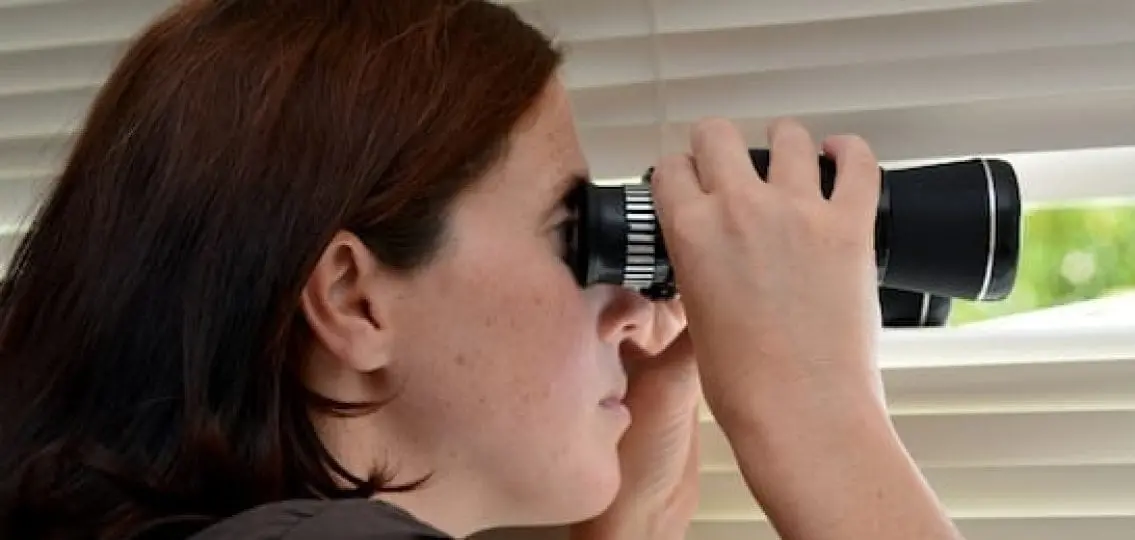After their 19-year-old daughter, Marie, left for college an hour away from their Minneapolis home, Mary and Ed kept very close tabs on her.

Five months into Marie’s first year at college, her parents found out that she had blown through $2,000 in high school graduation money and lied about it. That’s when they began monitoring Marie’s funds through her linked online bank account.
“Marie doesn’t know the value of a dollar,” Mary says. “We call or text her when we think she’s spending too much money.”
Ed and Mary also track Marie through the Find My Friends app on their iPhones. They require Marie to have the app on at all times. “I can see where Marie is, and the app is pretty accurate,” Mary says.
“It’s a crazy world and she’s a young girl who can get into trouble, so we have to be hyper-focused on her.”
Experts, however, say this kind of connection isn’t healthy. College is a time when teens—now young adults—should be emotionally and psychologically separating from their family, says Neil D. Brown, a family therapist in Santa Cruz, California and author of Ending the Parent-Teen Control Battle.
“Electronically monitoring teens in college isn’t healthy for anyone because it can send the disempowering message that ‘We don’t trust you. You can’t do it on your own. You can’t handle this’” Brown says.
“If we don’t let teens develop their own identity, they’re going to feel smothered and controlled.” Brown also cautions that these kinds of limits on growing independence can foster oppositional behavior or anxiety symptoms. Experts say this kind of connection isn’t healthy.
It’s one thing to monitor teens when they’re in high school and living under your roof. You might, for example, have them text “home” when they get home after you’ve gone to bed. It’s quite another to continue monitoring after they’ve flown the nest, says Brown. “Electronically monitoring teens in college isn’t healthy for anyone.”
To ease the transition to college independence, start giving your teen more autonomy and responsibility in middle and high school. That way, they will be more capable and feel more confident when they head off to college, and you’ll worry less.
Giving teens more independence and responsibilities before they leave for college will help to build your trust when your teen does leave home.
Plus, your teen will have more confidence and ability to live independently.
“Your job as a parent is to work your way out of a job,” says Vicki Panaccione, Ph.D., a psychologist and founder of the Better Parenting Institute in Melbourne, Florida. She recommends instilling independence by having pre-college teens practice the everyday tasks they’ll need in a dorm situation, such as:
- Preparing meals
- Doing laundry, including washing their own sheets
- Light housecleaning
- Buying their own toiletries
- Filling the car with gas
- Sewing on a button
- Managing their spending money and bank account
Now is also the time to help your teen learn how to safely navigate potentially dangerous situations that may come with college.
“Have conversations with your teen, such as, ‘What will you do if you go to a college party and people want you to drink?’” Panaccione says. They’ll no longer have the high school excuse of, “My mom will kill me if she smells it on my breath,” nor will they be able to text you to get out of a party gone bad.
With preparation, by the time college rolls around, you can trust that your teen is ready for more autonomy. There will still be missteps: They will oversleep and miss class. They won’t study and will get a bad grade. That freshman 15? They might gain it, or more. They might blow their budget.
“Everybody makes mistakes,” Panaccione says, “but it’s how teens learn and grow. It’s part of the college experience.”

Electronic monitoring isn’t, however, a healthy part of that experience. Lay the groundwork with younger teens now to let go later.


